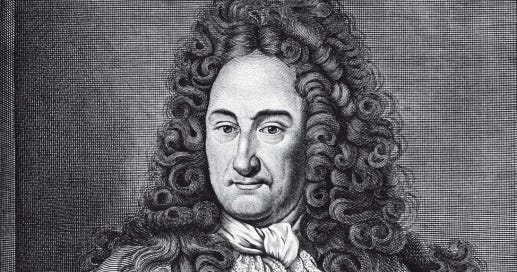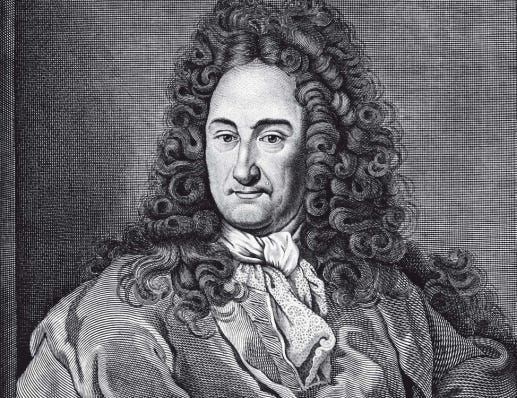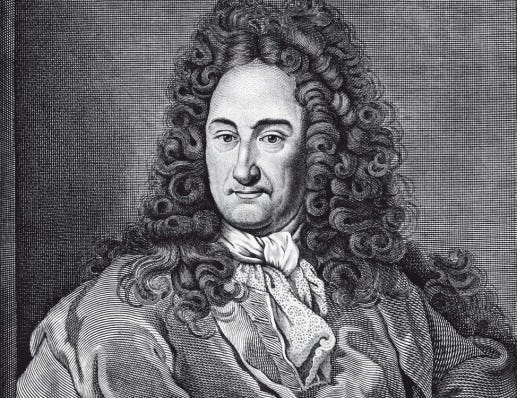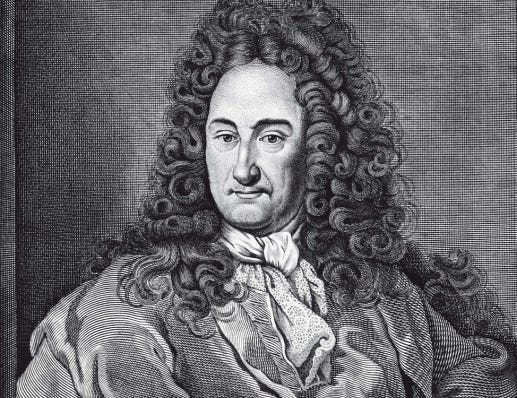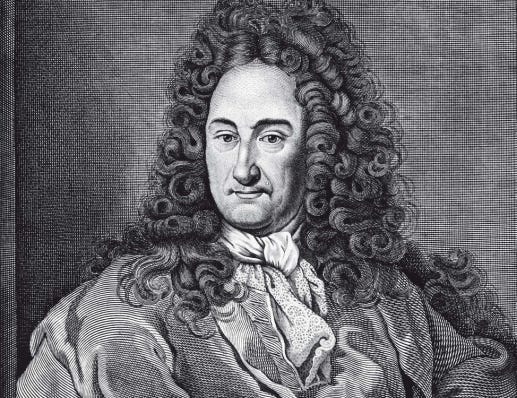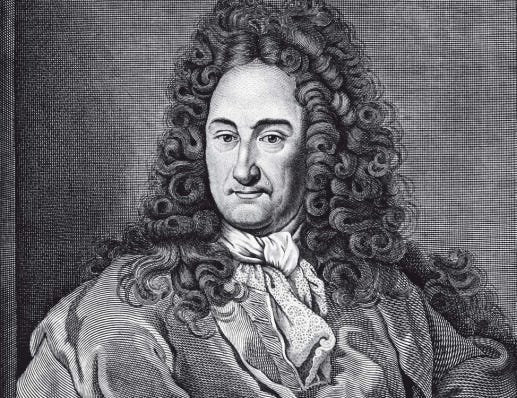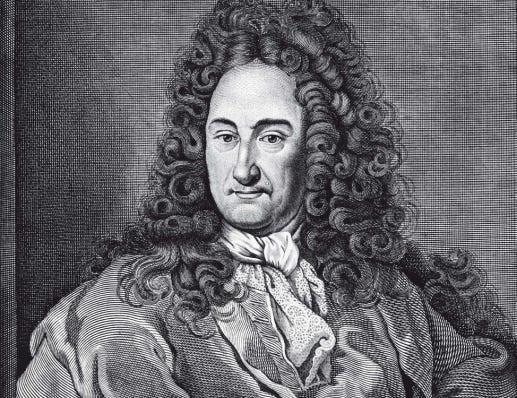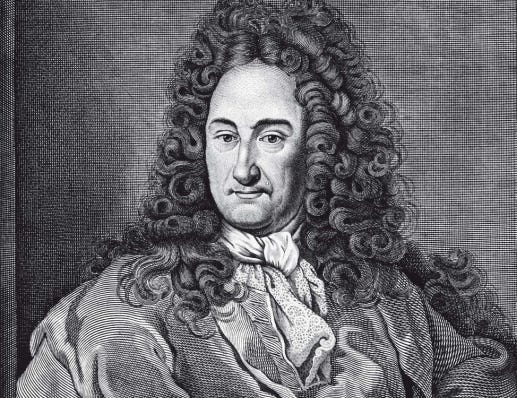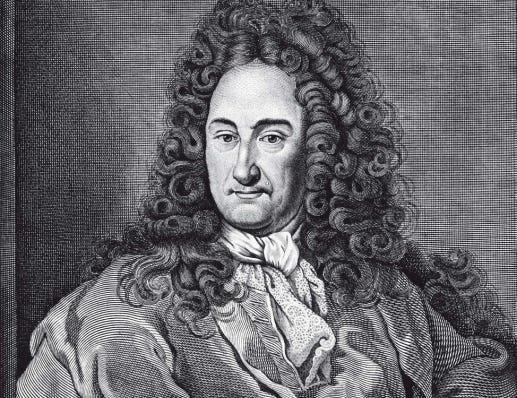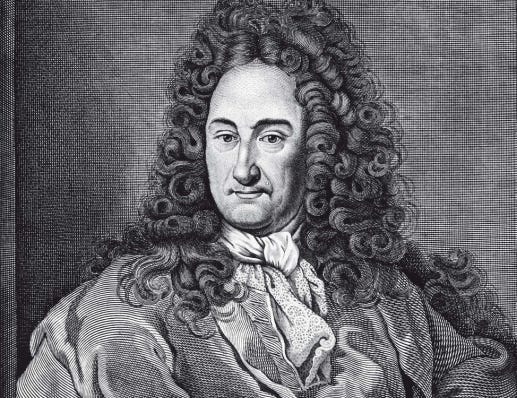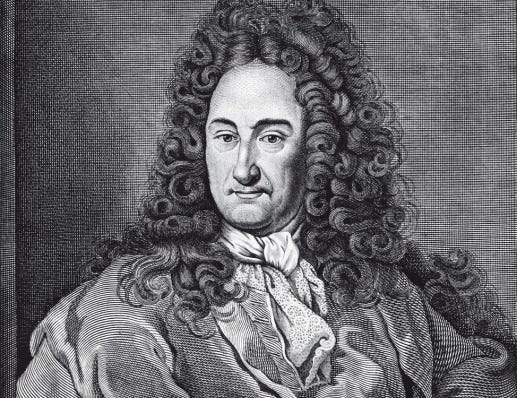Early Optimism and the Problem of Divine Freedom
Leibniz, Classical Theism, and the Problem of Evil - Chapter 5 (3 of 3)
Greetings, subscribers. As followers of Theological Letters know, I recently finished my forthcoming book on Leibniz and the problem of evil, and I have been posting fresh installments from every Sunday.
To date, I have posted the Introduction and all of Part I — Chapters 1, 2, 3, and 4. Today, I post the third installment of Chapter 5, Early Optimism and the Problem of Divine Freedom.
If you have yet to read all that comes before, I recommend you do so for context. Links to all prior sections are below. Be watching for the first installment of Chapter 6 next Sunday. Enjoy!
https://nathanajacobs.substack.com/p/pre-established-harmony-and-the-predetermination Chapter 4 part 4 of 4
https://nathanajacobs.substack.com/p/optimism-renewed Chapter 5 part 1 of 3
https://open.substack.com/pub/nathanajacobs/p/optimism-and-evil-in-early-christian?r=r1mfj&utm_campaign=post&utm_medium=web&showWelcomeOnShare=true Chapter 5 part 2 of 3
To all my subscribers, thank you for subscribing. To my paid subscribers, thank you for your support. And to any visitors, please consider subscribing and supporting my work. Enjoy!
Early Optimism and the Problem of Divine Freedom
We have already seen how the question of freedom naturally emerges within these early forms of proto-optimism — questions that are not unlike those we face with Leibniz. When saying that God does all things in the best way, does this negate contrary choice in God? The Christians unquestionably have a greater concern for divine freedom in this libertarian sense than their pagan counterparts. Plato, Aristotle, and the Stoics all ascribe “will” (βούλησις) to God, but it’s unclear that such will involves contrary choice (προαίρεσις). For will is an expression of desire paired with reason,1 which seems to yield a certain necessity in the will of God, even for Plato.2 And this tacit implication becomes explicit in later Platonists, where God emanates the world involuntarily, liberty being defined in this case as a lack of external restraint.3 In Stoicism, the connection between reason and will is even stronger, and the ramification is that the Highest, God, is identical with reason and cannot change either his will or his nature.4
As we have seen, the Christians make a decisive break with this pagan trajectory, insisting on both divine and human freedom in a libertarian sense. Numerous arguments appear in the Church fathers in defense of the point, all of which boil down to a defense of contrary choice. Some fathers argue that God cannot give free choice if this is a power he lacks.5 This case parallels the patristic insistence that the image of God consists of both reason and free self-determination (αὐτεξούσιον), and so God must have freedom as imaged in man.6 Others make the argument that divine choice is evident from the fact that God has capacities that he evidently does not exercise, such as the capacity to destroy the world at any moment.7 Still others make an argument from evil or theodicy: If God, the First Cause, operates without free choice, then all things are fated; if all things are fated, then God is the cause of evil; God, being Good, cannot be the cause of evil; therefore, all things are not fated and God operates by free choice.8
What these early Christians writers do not grapple with is the apparent chain of necessity that emerges when saying that God necessarily knows and wills the best. Such a claim seems prime facie incompatible with the idea that God acts by contrary choice. Yet, the problem would not remain unnoticed within Christian tradition.
Mentioned in prior chapters is the role of medieval faculty psychology (MFP) in Leibniz’s own theory, moving from the nature of intellect and will to the divine attributes — a pairing that naturally delivers a theory of the best. We also saw how this line of reasoning, building on the nature of intellect and will per se, naturally raises the problem of free choice. So, it should come as no surprise that the conflict between optimism and freedom comes to light amongst the Latin scholastics who employ MFP.
The problem emerges most clearly in Aquinas. By way of refresher, MFP suggests that decision-making involves a chain of targeted ends and judgments concerning the available means to those ends. Man’s governing end is happiness, and in a certain circumstance, he may determine that the best means to this governing end is healthy eating (subordinate end), and when considering his available options, he may judge a steak to be the healthiest option (the determined means). According to MFP, the faculty of intellect makes these judgments concerning means and ends, and the will then makes choices based on these judgments, which then moves the being into action.9
When applying MFP to God, however, a problem emerges. Aquinas suggests that it is God’s nature to know — God being essentially omniscient. So, God does not deliberate about truth and falsehood. He sees it. Aquinas suggests, by way of implication, that when God assesses the choices available to him, God sees each end in conjunction with the best possible means.10
Now, I mentioned briefly in chapter 1 that there is a debate in MFP about whether the will can choose contrary to the judgments of the intellect. One side, the intellectualists, argue that the will is blind without the intellect, and therefore, the will must follow whatever the intellect judges to be best. The other side, the voluntarists, argue that nothing can move the will but the will. So the will has the capacity to either accept the judgments of the intellect or reject them.
Aquinas falls on the intellectualist side of this debate. Hence, the divine will blindly follows the final judgments of the divine intellect. And here we see both (qualified) optimism and the problem of divine freedom. Concerning the best, God’s intellect necessarily sees each end in conjunction with the best means, and God’s will necessarily follows this judgment.11 Hence, a chain of necessity emerges — the very chain we saw in Leibniz. Being omniscient, God necessarily knows the best; being omnibenevolent, God necessarily wills the best. And if the will is a blind follower of the intellect, then the best necessarily follows.
Aquinas recognizes the implication and the problem it creates for Christianity’s ardent rejection of fate and emphatic endorsement of divine freedom.12 He attempts to rescue God’s free choice by an appeal to divine perfection. The strategy plays on the idea of a governing end. Like in Aristotle, every being has a nature that determines its final cause, purpose, or proper end (τέλος) — the eye for seeing, the ear for hearing, and so on. In the case of rational beings, the chief end at which they aim is no less innate.13 Hence, the governing end of a being is a matter of ontology, never a matter of choice.14
In the case of human beings, the chief end is happiness, as already noted.15 But the same is not true of God, despite his rational nature. Why? The answer is this. Our governing end reveals our incompleteness. Just as we are not born virtuous but must attain it, so we are not born happy. We must grow into what we are made to be. But the same cannot be said of God. God is fully actual and in need of nothing.16 Hence, happiness cannot be God’s governing end. So what is?
According to Aquinas, God’s governing end is to express his own Goodness, a Goodness that is perfect and complete in itself.17 The latter point is key to how Aquinas tries to rescue divine freedom. He argues, “since the goodness of God is perfect, and can exist without other things … it follows that His willing things apart from Himself is not absolutely necessary.”18 In short, God necessarily wills his own goodness, but that is where the necessity of divine will ends.
In other words, Aquinas attempts to introduce choice into the equation by insisting that God’s perfection binds him to nothing but his own Goodness. That Goodness is God’s chief aim and willed necessarily. But his Goodness is complete. So, whether God acts or not, he is Good. No choice concerning creatures — “the things apart from himself” — is required for him to be Good. Or put differently, when considering the means of expressing his Goodness, no particular course of action is required since no action can make God Good. He is Good already — perfectly and completely. Thus, any course of action that reflects divine Goodness is acceptable, but no course of action is required. So Aquinas concludes, “God necessarily wills His own goodness, but other things not necessarily.”19
The voluntarists were unpersuaded by such a solution.20 After all, the intellectualist believes the will is blind without the intellect, so the will cannot move into action unless the intellect offers a judgment. This commitment creates a major difficulty for Aquinas’ solution.

